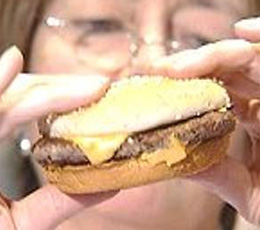
The study was conducted by a team of researchers from the University of Adelaide led by PhD researcher Cadence Minge and was conducted on pregnant mice.
While conducting their study the researchers noted that a fatty diet stops eggs from developing into healthy embryos, thereby affecting fertility.
“As a result, when fertilised, these eggs are not able to undergo normal, healthy development into embryos,” said Dr Minge.
“We hope our findings will encourage women to consider carefully the impact of their lifestyle choices on their own future and that of their children,” she added.
However, the researchers also found a way to completely reverse the effects, thus enabling the eggs to develop into healthy embryos. This was done by using the diabetes drug Avandia.
Using the drug the boffins selectively targeted a protein called peroxisome proliferator-activated receptor gamma (PPARg) and found they could undo the damage caused.
“The drug enables us to switch on the protein, thereby changing the way in which the ovaries sense and respond to fats,” Minge said.
“Embryo development rates are restored, and the cellular differentiation of the early embryo is improved,” she added.
However, Dr Minge also warned women that Avandia is not a safe treatment option for obese, infertile women at this stage.
“Also, the drug itself can have possible harmful side-effects, and more research is needed to find other, safer ways of activating the protein,” she said.
